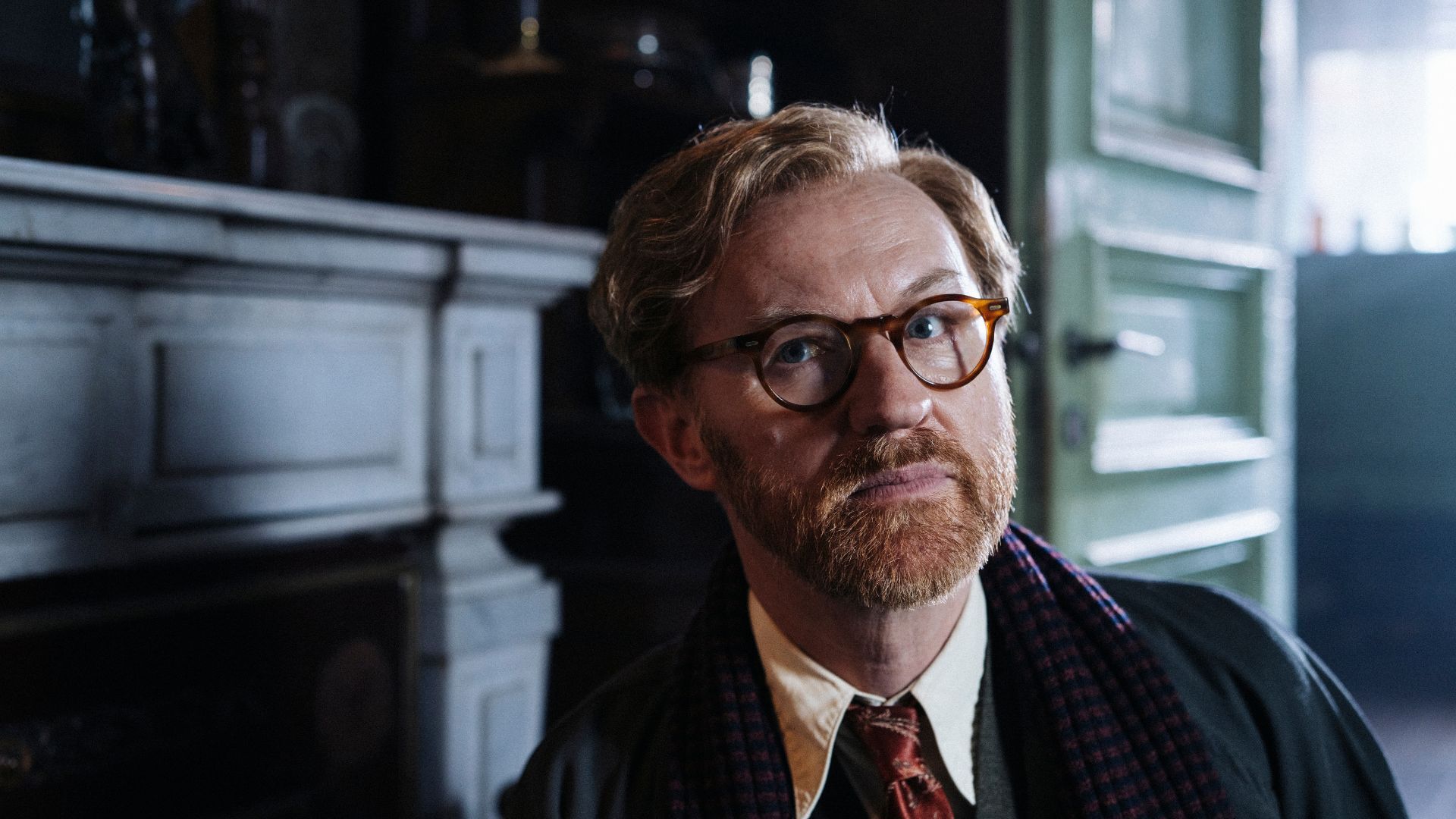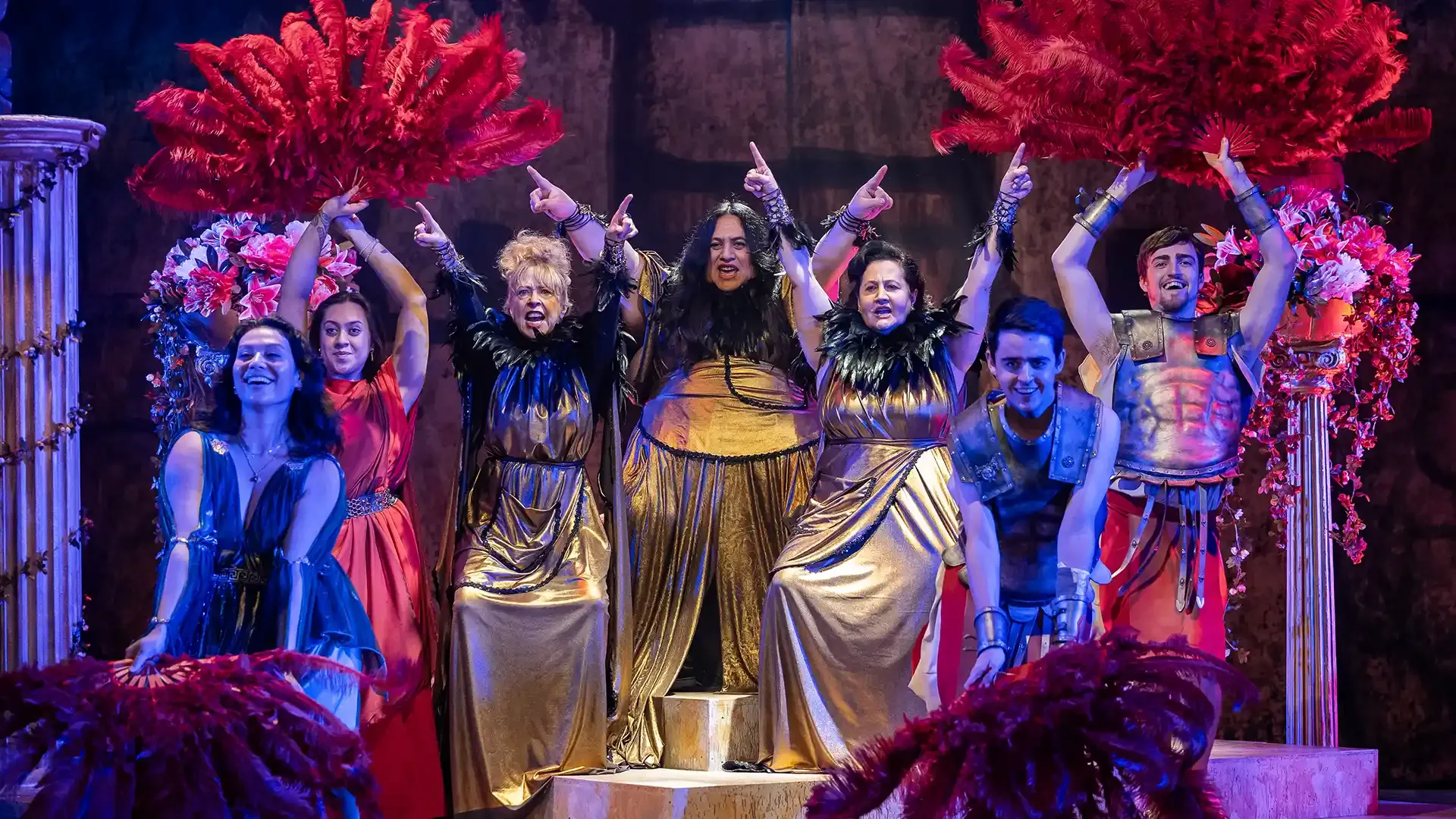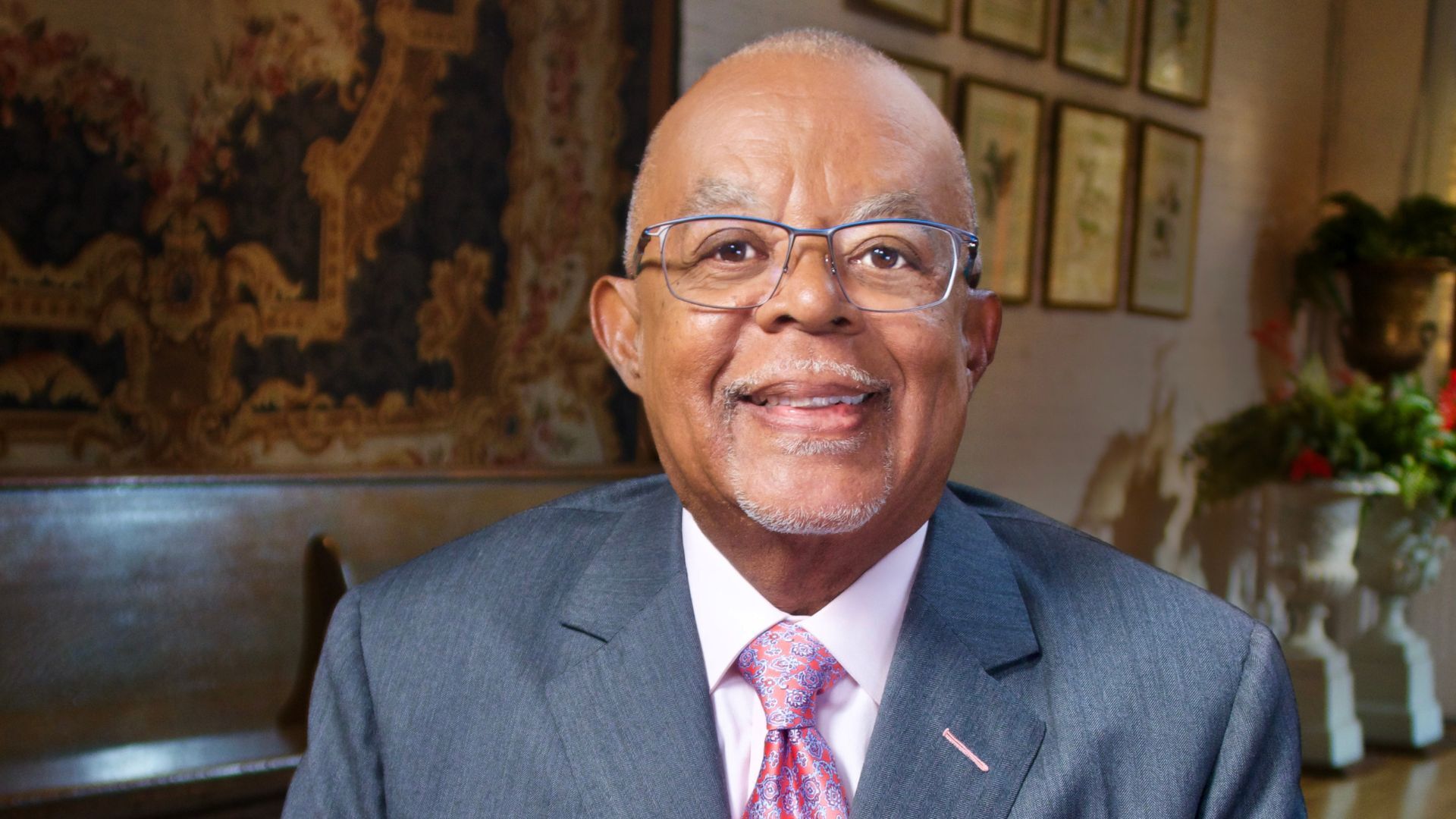At 15, Greta Thunberg began her journey into activism when she demanded action on climate change outside the Swedish Parliament. In the years following, she became a leading voice in the fight to protect the environment as countries across the world battle raging wildfires, drought, deadly heat waves and more. She’s spoken with world leaders, joined protests, and publicly called upon countries to do more to fulfill their commitment to the Paris Agreement.
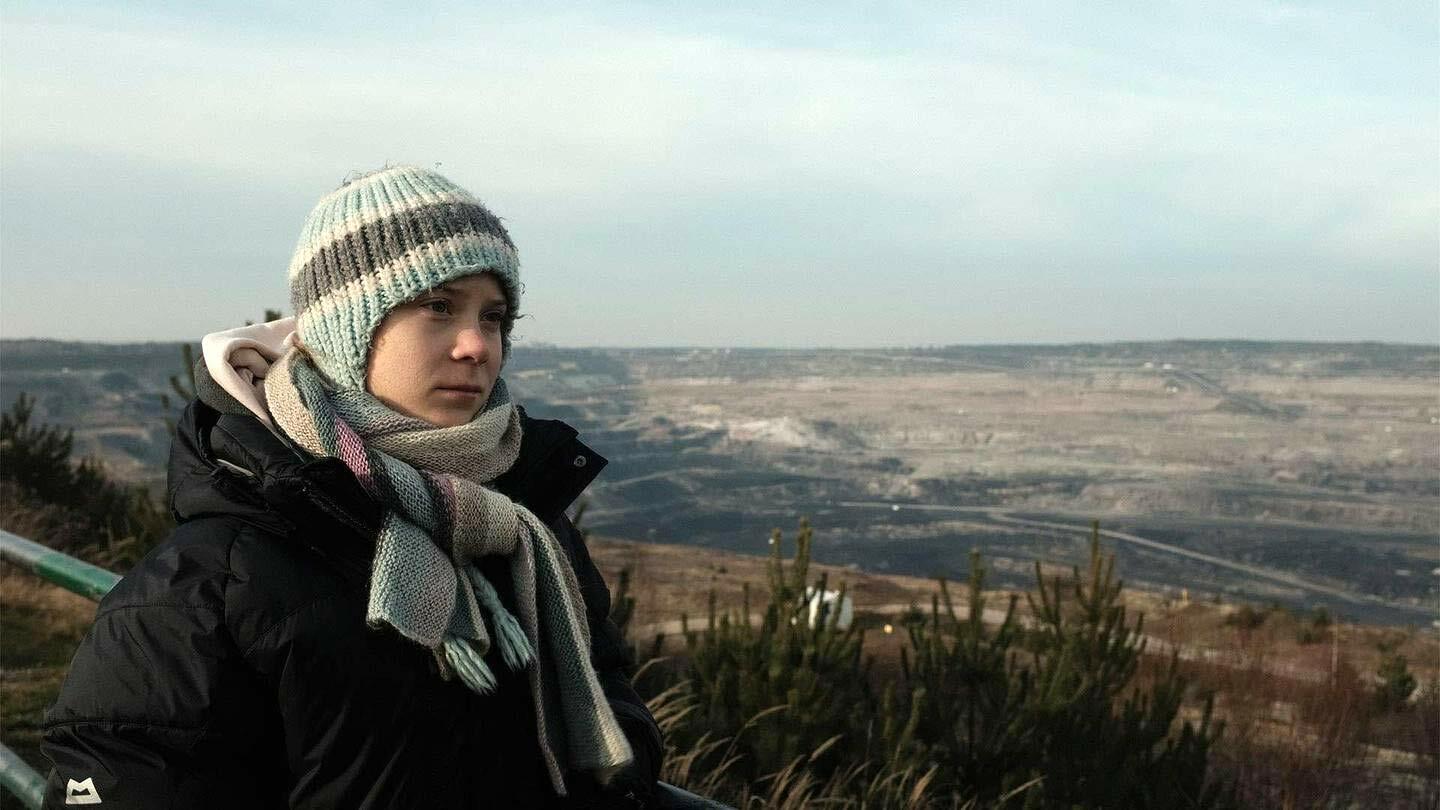
Bill Gardner: One of the things, Greta, that really struck me when you made the film and as you spent the last year you visited a lot of places trying to come up with solutions for climate change but you were quick to say that it’s not enough to talk about solutions but we really have to talk about the issues and not tell ourselves that everything is going to be okay.
So did any of the solutions that you saw in the film give you hope? Or do you think it’s too little too late, too slow?
Greta Thunberg: There are many solutions that give me hope. Just as an example, the incredibly many technical solutions that we have. But I think the biggest solution, the biggest source of hope that I have is something that didn’t quite make it into the documentary is that the media, and the ability to reach people and to raise awareness and create public opinion, and what power that has. So that’s probably the biggest source of hope that I have.
Gardner: The thing that really came through is how self-aware you are of what your role is and the power you have to get these messages across. And yet there’s also times that you express frustration that people focus on the drama of your encounters and your confrontations so to speak versus the message. How do you balance that? You clearly know the power that your persona has. How much do you think about that?
Thunberg: Well, I think of course it’s a bit annoying and strange that people focus so much on me and make this a question rather about me and other climate activists instead of the actual crisis. And of course that is strange because it takes away the focus from the actual problem. But of course I understand that it is a way for people to understand the problem more if we use emotions, and if we can put human faces onto it then people can identify with it more. And it’s easy to communicate so of course I understand that but it’s an absurd focus on individuals.
Gardner: Do you see yourself doing this for a long time? I’ve read interviews with you where you think eventually people will lose interest, but do you want to stay in the spotlight or what do you want to do over the next few years?
Thunberg: I want to continue for as long as there is a need for climate activists. Whether that is in the spotlight or not it doesn’t really matter but as long as I’m doing something, because unfortunately there will probably still be a need for climate activists for quite a while.
Gardner: I think you’re right about that. I’ve also seen you tweeting about other things like the farmers strike in India. Do you see your activism evolving in other areas or do you see that as part of the climate issue?
Thunberg: It’s not like it’s evolving but just some things you cannot be silent about, like fundamental human rights. I don’t see that as politics but just as some things you need to speak out about. And of course we cannot separate social justice, etc. from climate justice because they are still the same struggle – the fight for justice. And of course the climate crisis is only a symptom of a much larger sustainability crisis. So the climate crisis is not the only issue that we should be focusing on. We have to proceed from a wholistic point of view and it’s not just that we want to reduce emissions. The world is a bit more complex than that so it’s so much more than that.
Gardner: Are there other climate activists – particularly Indigenous activists who are often on the front lines of climate change – that you are particularly supportive of or you think have particularly good messages? That is unfortunately who is bearing a lot of the brunt.
Thunberg: Yes, unfortunately the climate crisis is a very unfair crisis. The ones who have done the actually least to cause it are the ones who are going to be hit first and hardest. And in those cases it’s Indigenous peoples [who] are very overrepresented when it comes to that but they are also the ones who are leading the fight against it, which is very admirable. There are so many activists that I look up to. And also people who are activists in countries where it’s literally illegal to be a climate activist. I just find them incredible and so inspiring.
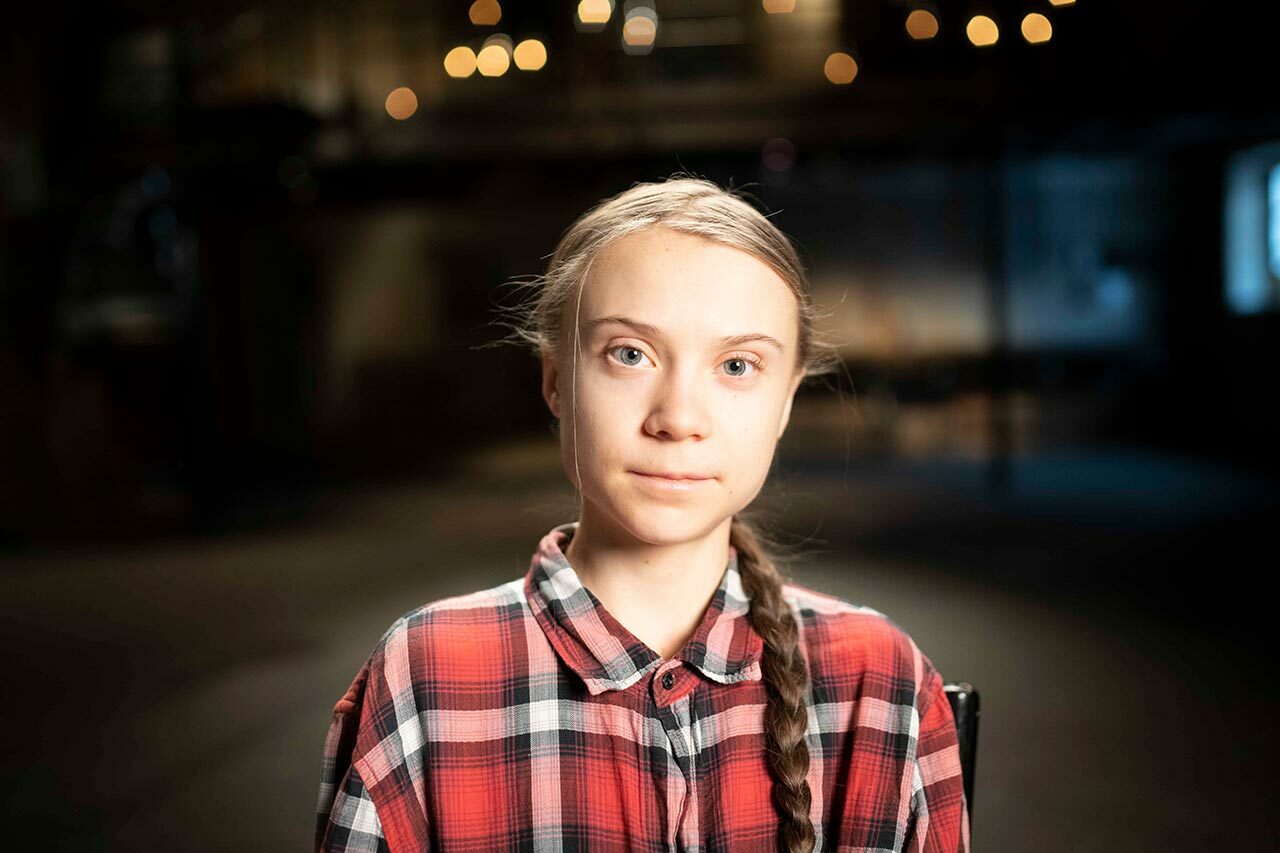
Gardner: That’s one of the things in the documentary that jumped out to a lot of us who were watching it. You have a lot of empathy for the people on the front lines who maybe their culture is even caught up in the fossil fuel industry, like the Polish miners that you go to see. It’s not often that in these types of films people say, well how is their culture going to be impacted or changed, how do they shift?
The same thing is in the States in the U.S., you know, the coal industry. It seems to be more about a culture having to shift than losing jobs and support. And it seems to me that it’s about cultural choices that society has made about who they want to be. Is that part of your message?
Thunberg: Yes of course. Our culture, our identity right now is based on that we humans are above everything else. That we have the right to exploit other humans, other cultures, other animals in nature as well, so that’s what we have based our society on and our culture of course. So if we are going to change we are of course going to have to change our mindsets and we have to see nature for what it actually is. We have to value nature and each other differently. So it’s a lot about a cultural shift as well.
Gardner: There’s a lot of conversation about how the pandemic experience will change things. I think you’ve gone on record that you’re not sure that that’s true and I happen to agree with you – maybe for a short time. Do you see any hope that maybe some people may think differently or behave differently because of what we went through?
Thunberg: Maybe. And of course there is lot of hope and possibilities that we will change but maybe the pandemic will not be the main reason for that but rather that we start actually treating the crisis like a crisis. We humans are social animals. Just imagine if, for example, the media or people in power or our leaders would actually start treating the crisis like a crisis that would have a snowball effect and people would start to change and since we copy each other’s behavior, we look at people around us, what they are doing and that could change things overnight. And so I think rather that is what we are waiting for.
We say that it’s not until our backyard is on fire that we start to take action but we can see for example if you just take some examples from the Western world like California or the bush fires in Australia – it’s so clear that they have connections to the climate crisis. But of course the people there didn’t change. So it’s going to require much more than that. It’s going to require a social change — a shift — in our norms. That is the only way forward because that’s the only way we are going to take action.
Gardner: To that point, what we have now is the Paris Agreement, such as it is. There’s a lot of loopholes in it; countries tend to go back and forth whether they get involved or honor it. Do you think that these agreements are actually meaningful and useful or the best we have at the moment? You speak about it a lot - about people not living up to the commitments which even they’re not enough themselves. Do you think it’s about international agreements or something different?
Thunberg: I think the Paris Agreement has had a huge impact. It has been absolutely crucial. I mean just imagine if we didn’t even have the Paris Agreement. And of course it may be non-binding and so on, but it, as you say, it’s the tool that we have at hand right now. And so it may be incomplete but at least it’s what we have.
People say that we shouldn’t use morals or morale and what is right and wrong because that will only shame people. But of course since we don’t have any global binding commitments or treaties then of course morale is all that we have. It’s our only tool. And even if the Paris Agreement hasn’t reduced emissions in practice it’s still a priceless tool to have to actually hold them accountable to their words, to their promises.
For example, the school strike. A school strike won’t lead to any literal emission reductions but the school strike is a method in order to create awareness and to create public opinion and that in turn will lead to one thing that will lead to one thing and that will at the end hopefully lead to emission reductions.
Gardner: It makes me think of one of the segments in the documentary towards the end of it. You allow the emotions to kind of take over when you’re speaking to us. It’s when you’re doing the interview directly to the camera and you kind of make that point. It’s important to feel pain and sadness and a sense of loss because these things are real that we’re going through and I think that sometimes when we get too technical or governmental about policy we forget the human stories.
Do you think that direct sense of empathy and pain is the most effective tool for people? It seems to be more impactful than just going to their intellect. Is that something you embrace?
Thunberg: Yes of course. We need both. We can’t just only be emotional or we can’t only be factual so to speak. We need emotions based on reality. We definitely need to have more empathy and to think about the human aspect of it. These aren’t numbers. These are human lives that we are talking about so we need to change the perspective of that I think yes.
Gardner: I understand that you are speaking to the U.S. Congress. We have a different guy in charge now. Do you have faith in the new regime?
Thunberg: Of course we can always hope that it will bring change and we can always push as hard as we can to make sure that happens. But of course we can’t relax and lean back just because there’s a new person in charge. That would be very dangerous because he would be celebrated just for not doing the worst stuff. So there’s of course a big danger that people start to relax. But of course this change could bring some action. I’m not saying that it won’t. I’m just saying that we can’t take for granted that it will.
Gardner: Do you continue to see yourself as a global activist? Or do you want to target Western governments where you’ve been speaking mostly? What do you see as your goals over the next few years?
Thunberg: Of course the goal is to do as much as possible and since this is a global problem it requires global solutions. The documentary series only takes place in North America and Europe, which is of course very unfortunate. The plan was to go to many other places as well but then of course the pandemic hit and that didn’t happen. I think we had a schedule of 106 days – each day planned. To travel to China and Japan and South Korea and then on maybe on to Southeast Asia as well. I hope that there will still be a possibility to go there — if I will be let inside the country since they’re not all democracies.
Gardner: That’s an interesting point because I was just going to tell you that if you’d like to make a sequel I’ll make a sequel with you. But that’s an interesting point you make. In some places you may not be welcome because of your activism.
You started missing a day of classes on Fridays and within a couple of years you are “Greta.” How does that make you feel now going forward when you think about going to some of these places? They may not want you to come. Do you think about that?
Thunberg: Yes, of course. Just an hour ago I was in contact with someone whose friends had been arrested because they had been protesting. So it really makes you think — it really makes you appreciate the fact that you live in this part of the world and of course the fact that I succeed — and other climate activists also of course — in making these kinds of people upset and irritated and annoyed. Of course that’s something that you should measure as success because you don’t want to share values with these kinds of people. So that’s a good thing I would say.
Of course it shouldn’t be this way. For the people who have this as a reality of course it may be very insensitive to say but still, I’d rather be a person who wouldn’t be let inside the country because I stood up for what is right rather than just be someone who obeys and doesn’t think twice.
Gardner: Your father has talked about that a lot over the course of the documentary. I know that you’re in a separate flat from the rest of your family now. Is that part of this — the noise around your life or is it security? How is your dad through all of this?
Thunberg: When my mom became pregnant with me he stopped working to become my kind of housewife, to take care of the children. So in that way he’s always been here for us and then of course when I started doing this he’s had to follow along in that sense whether he likes it or not. I’m sure he would do much rather do different kinds of things but I guess in a way he’s stuck with it now. Of course I can’t undo any of these things. We do this because it’s mainly for safety reasons because otherwise people will figure out where I live and that’s not very pleasant. So of course this doesn’t only affect me it affects the whole family. It’s different when someone threatens me but when someone threatens your family that’s a completely different thing.
Gardner: Do you want to go to university abroad or in Sweden? Or do you want to be a full-time activist? What are you thinking you want to do?
Thunberg: I don’t know but I do know I want to continue studying. I don’t know how that will be but I do know that I want to continue. And whether that will be in university or whether that will be in Sweden or whether it will be later on I don’t know. I guess I will just have to see where I end up.
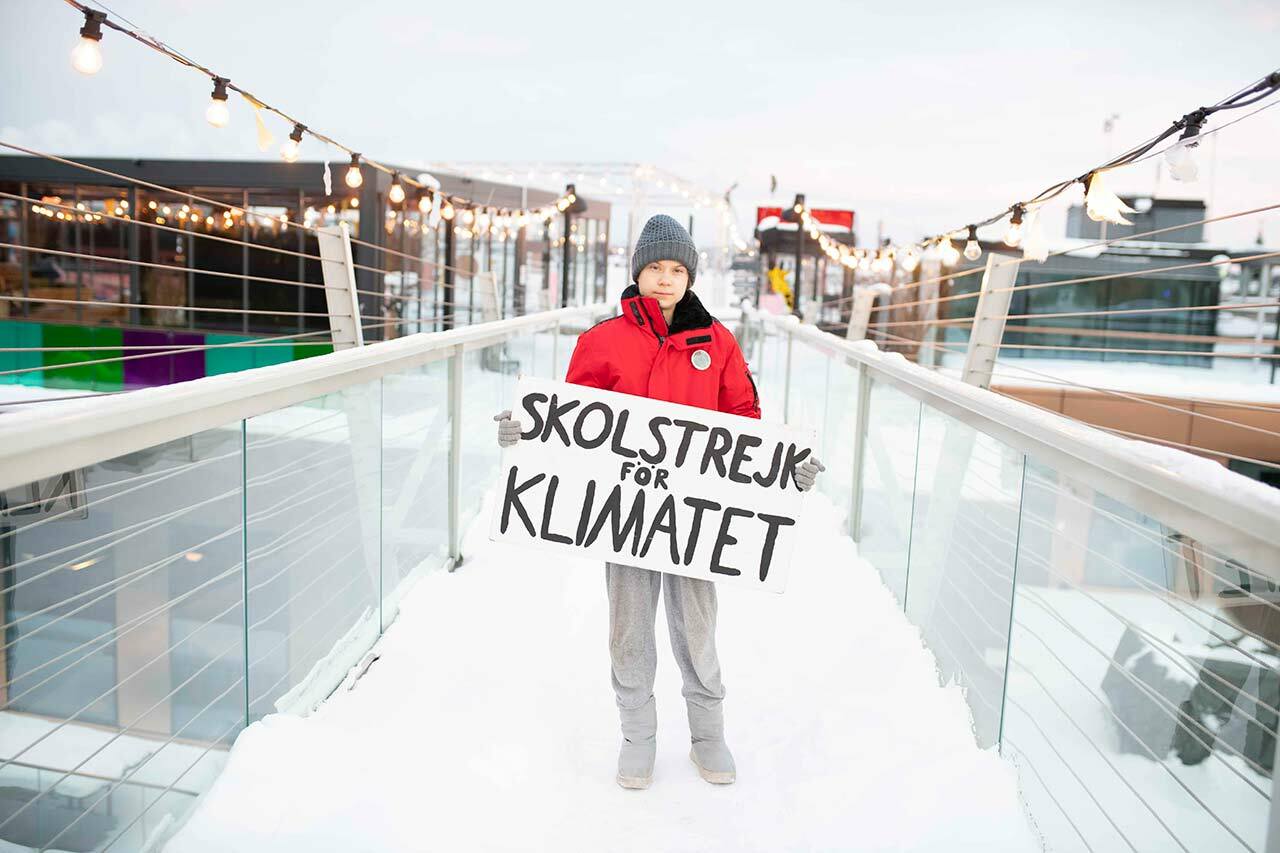
Gardner: Are you taking things day by day? You went through a lot of change very fast.
Thunberg: First I was a shy, quiet schoolgirl in the back who didn’t say anything and then I became a global climate activist with all this attention and everything that comes with that and then from that also [going into] lockdown. It’s like three completely different realities. It’s been a very strange experience but also very exciting because I don’t know what will happen next and everything can change from one day to another.
Gardner: The way Sweden reacted to the pandemic was not to take much action. And for someone who’s pushing for central action on things it must have been quite a juxtaposition to live through.
Thunberg: Yes, Sweden has had a different response in many ways, but of course that doesn’t mean we haven’t seen the effects of this and that we haven’t had to change. For example I have online classes and my mom, who is in the entertainment industry, hasn’t worked for over a year because they aren’t allowed bigger crowds. We haven’t been able to strike and I mean just things like that so we have been affected by it even though it’s not as much as in other countries.
Gardner: You mentioned before that older generations don’t seem to be taking this as seriously. When you met with Sir David Attenborough — which was a great, great scene — that must have been amazing experience for you. He was very much telling you that you are a little different because you are from a younger generation, you’re very much speaking truth to power and that’s resonating. Do you have the feeling it’s going to take younger people to really effect this change? Do you think there’s any getting through to the older leaders now?
Thunberg: Of course nothing prevents older people from also taking action and nothing says that they can’t do it but we see that more young people are engaged in this. And if you look to history all these major changes and all these major movements have always been driven by young people. And this is of course no exception. So I think young people will be leading but of course we also need older people to get involved. So if we succeed in creating a critical mass – if we reach enough people if we could spread enough awareness then I think older people will also jump on the train so to speak.
Support your local PBS station in our mission to inspire, enrich, and educate.
Gardner: It’s also interesting to me the way different generations communicate – it’s so different. Being in the media myself you see it, whether we’re doing things through tweeting or little, short pieces on TikTok or whatever. You have a great Twitter persona. You know how to send out the right types of things – very, very humorous stuff. Do you do that intentionally or is it just that you find amusing yourself and you’re just being unique?
Thunberg: I think it’s just that I want to do it. I think it’s fun.
Gardner: This has been a hard year for a lot of people. I know you get a lot of comfort by going to see the horses that are in the documentary. Are there other things that you do to take the pressure off sometimes?
As you’ve said in the documentary and elsewhere people think you are an angry teenager. But seeing the film and speaking to you now, you’re not. How do you kind of balance all of that pressure?
Thunberg: I do lots of kinds of different things. For example, I do jigsaw puzzles. And I also do like embroidering and handcrafting like knitting and so on. So those kinds of things. And of course I cuddle with my dogs and so on. And I also listen to lots of audio books.
Gardner: What do you like to listen to?
Thunberg: Right now I’m listening to “Silent Spring” by Rachel Carson. Things like that. Lots of climate books, environmental books but also books and podcasts from which you learn new things.
Gardner: Are you familiar with platforms like Clubhouse and other conversation types of things – Salon? Are those things you would ever participate in? Or do you want to just choose your messages when you want to put them out?
Thunberg: I’m familiar with them but I don’t really understand how I would use them. I don’t have the time to really get into that. But it doesn’t mean that I won’t do that in the future if I suddenly feel like doing that.
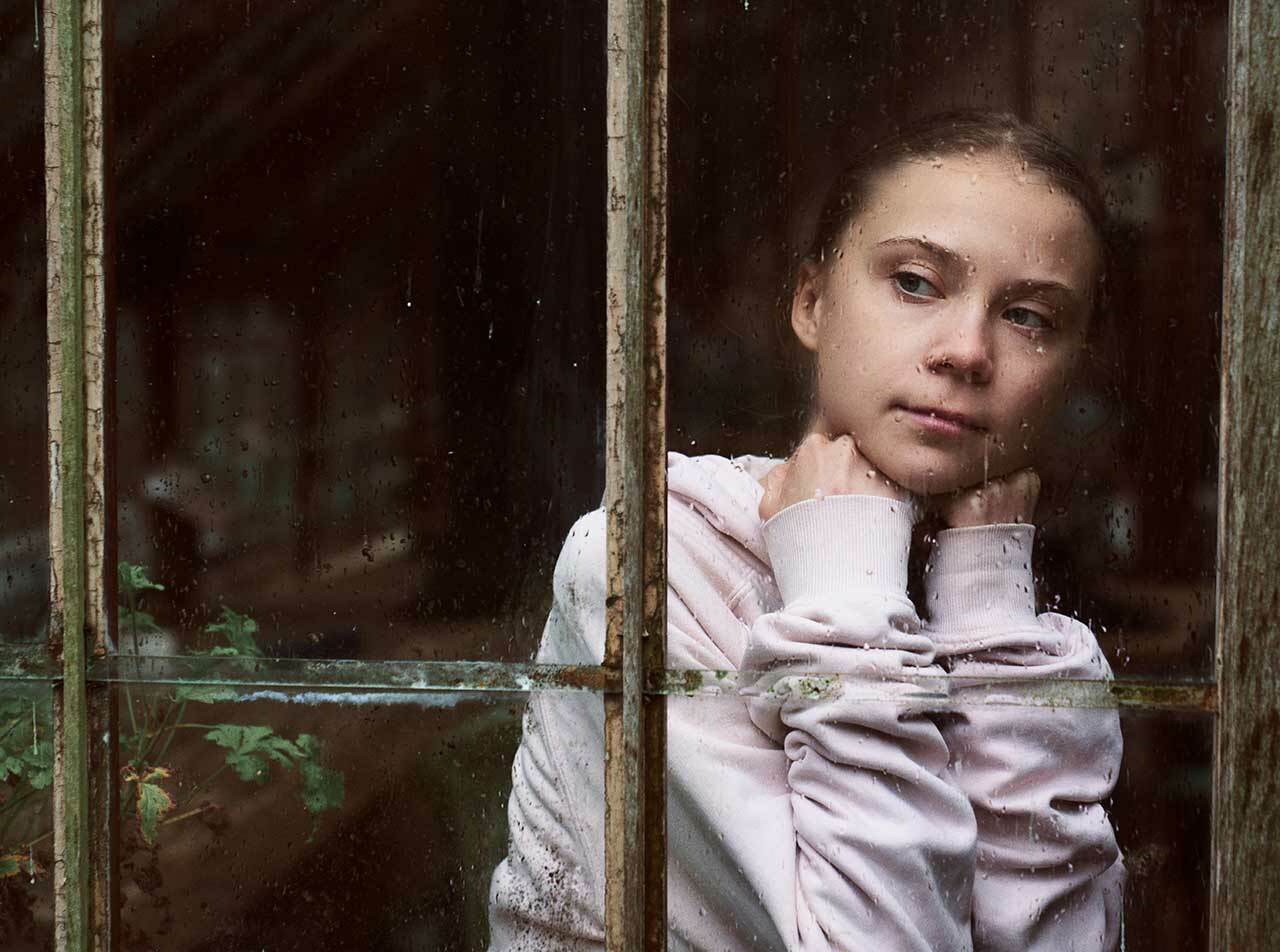
Gardner: Will you participate in COP26 in Glasgow?
Thunberg: That depends. I don’t know whether it will be held as it is now. Probably not enough people will be vaccinated by then. And of course if enough people will be vaccinated then it will only be when countries will be allowed to participate on the same terms.
For example, countries like the U.S. and the U.K. will probably be fully vaccinated by then. And other countries, mainly in the developing parts of the world, will not be. And then of course they will not be able to participate on the same terms. And that will only make the situation worse because climate injustice is at the very heart of the climate crisis and if we don’t have international cooperation where the most vulnerable get to make their voice heard then of course we won’t be able to achieve any real just equitable changes. So it needs to happen in the right way.
Gardner: That seems to be a metaphor with the vaccines with who has it first and who doesn’t have it first. I see a parallel in how people are dealing with climate change. Do you see that? Do you think about that?
Thunberg: Yes definitely. The UN, for example António Guterres and Tedros Adhanom Ghebreyesus, they often talk that this is a moral test. A test of solidarity. How can we talk about solidarity when this theory of vaccine nationalism exists and is the leading narrative? And of course it’s a big metaphor like you say to show how we value others. When it really comes right down to it, it shows our true face.
Gardner: What do you hope to come out of this documentary that you’ve made? Are you hoping people take a certain thing away from this? And what motivated you to do it?
Thunberg: I want people to watch it and it really to have an impact on people and to raise awareness. The reason I did this was to sort of give science a voice more than it has now because like I said I don’t want them to listen to me but rather the science. So I’m hoping that it will shift the focus towards the science and of course I hope it doesn’t just - that people watch it and say, “Oh that’s nice” and then go on like before. Of course they will do that but my hope is that it will have a lasting impact.
Gardner: Well I think certainly [for] younger generations who are starting to vote now too it’s already having an impact just anecdotally when we talk about what we’re doing or I tell people what we’re doing the excitement is very, very large. So as Sir David said to you, I think you are really making an impact. Making people feel hopeful that their voice matters and they can influence their governments and more people are running for office.
You are right — we have to change now but these things tend to be slow but I think that it’s pushing in the right direction. Do you see yourself as ever running for an office?
Thunberg: I have no idea. Maybe. But as it is now party politics won’t solve this crisis. That won’t be the thing that solves it. But I don’t know. I’m not closing any doors. I just have to see. Of course the world will not look like it does right now so maybe that will change in the future.
Interview conducted by Bill Gardner with research assistance by Emma Goddard. This interview was conducted April 18, 2021 and was edited for length and clarity.

The PBS 'What to Watch' Weekly Newsletter
What to Watch delivers the best shows and content PBS has to offer each week.

